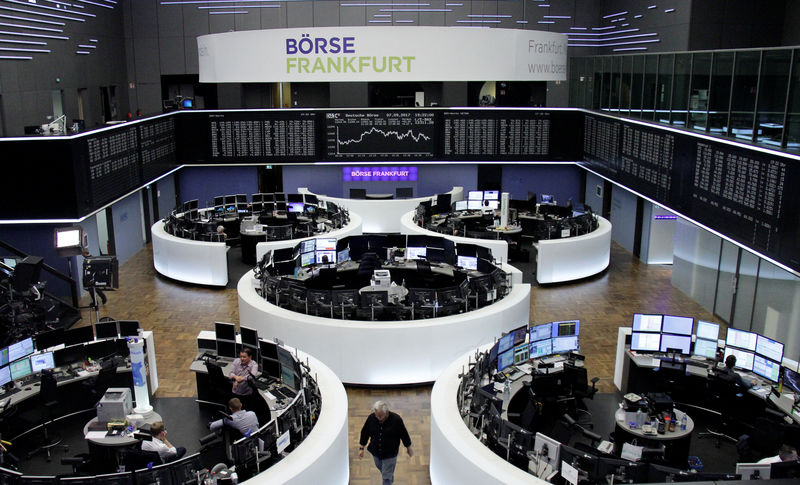By Vikram Subhedar
LONDON (Reuters) - The dollar remained mired near its lowest levels since early 2015 as European Central Bank President Mario Draghi's suggestion that the ECB may begin tapering its massive stimulus program this autumn continued to underpin the euro.
Meanwhile expectations of another interest rate hike in the U.S. this year have subsided as stubbornly weak inflation continues to surprise Federal Reserve policymakers.
In a speech on Thursday, New York Fed President William Dudley did not repeat an assertion from three weeks ago that he expects to raise rates once more this year.
An agreement to push U.S. debt ceiling talks three months down the road to December, coinciding with the Fed's policy meeting, have also cut chances of another rate hike.
Further muddying the outlook for the future path of U.S. interest rates was the ongoing uncertainty over what the make-up of the Fed and White House staff is going to be next year.
Overnight, sources told Reuters that the fraying relationship between U.S. President Donald Trump and top White House economic adviser Gary Cohn has raised questions about how long Cohn will stay in his job.
The concerns stem from a report in the Wall Street Journal – confirmed by other news media, including Reuters – that Cohn was unlikely to be nominated by Trump as a potential successor to Fed Chair Janet Yellen.
In Europe, the euro <EUR=> rose to a fresh 2-1/2 year high on Friday as currency bulls judged the central bank's concerns about the strengthening currency at Thursday's policy meeting as lukewarm at best.
"We think the ECB would be concerned about currency strength if that occurred at the same time as higher bond yields," said analysts at Morgan Stanley (NYSE:MS), led by Hans Redeker, while reiterating their bullish view on the euro.
"The USD decline has gained momentum now after the Fed’s Dudley did not state explicitly that there would be a hike this year but instead focused on gradual removal of accommodation," Morgan Stanley analysts added.
A Reuters report that ECB policymakers were in broad agreement that their next step will be reducing their bond purchases and discussed four options at their latest meeting also helped the euro on the day.
The euro jumped around 20 ticks to $1.2069
Fears that the euro's rally would hurt profits at Europe's large exporters has weighed on regional stocks in recent months. The pan-European STOXX 600 (STOXX) is down about 6 percent from its May highs.
On Friday, it came off its lows as the bounce in European government bond yields after the Reuters story on the ECB helped bank shares (SX7E).
U.S. stock futures (ESc1)
HARVEY AND IRMA
Market participants' focus is increasingly shifting to a series of natural disasters hitting North American coasts and worries that Pyongyang could launch another missile test on Saturday, North Korea's founding day, keeping risk appetite in check going into the weekend.
Investors continued to track Hurricane Irma, bearing down on Florida even as Texas struggles with the devastation caused by Hurricane Harvey which economists have said could weigh on U.S. economic growth for the third quarter.
An earthquake of magnitude 8.1 struck off the southern coast of Mexico late on Thursday, killing at least five people, triggering minor tsunami waves and damaging buildings.
Oil markets were mixed on Friday, with Brent crude supported by expectations that Saudi Arabia could cut its October supplies, while U.S. crude was weighed down by refinery outages due to damage from Hurricane Harvey.
Brent crude futures (LCOc1) were up 8 cents at $54.57 a barrel, with the benchmark for international oil prices earlier marking its highest since April at $54.79 a barrel.
U.S. West Texas Intermediate (WTI) crude futures (CLc1) were at $48.98 barrel, 11 cents below their last settlement.
